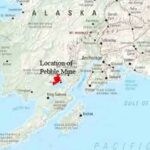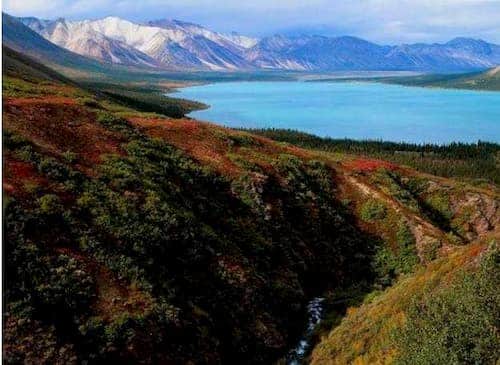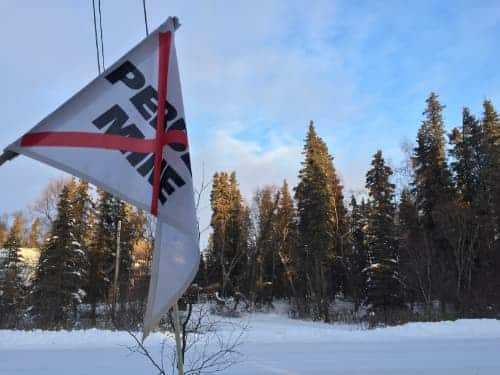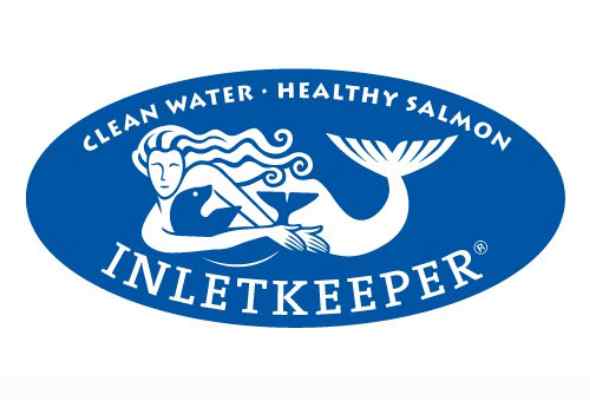Alaskans and the people of Bristol Bay deserve to see this critical piece before any agency decisions or actions

Groups advocating for the protection of Bristol Bay waterways, salmon and communities condemn the U.S. Army Corps of Engineers failure to make public a recently submitted mitigation plan for the proposed Pebble mine.
“It’s remarkable that the Army Corps would say in August that this mitigation plan is essential to this project’s ability to meet Clean Water Act requirements and then today, with this key piece in hand, refuse to let the people who would be most impacted see it,” said Brian Litmans, legal director of Trustees for Alaska. “The fact is, you cannot mitigate the destruction of Bristol Bay headwaters. The people of Bristol Bay and Alaska know that there’s no way any mitigation plan can right the wrongs this mine would inflict on this watershed and its salmon runs, fishing jobs, ways of life, and communities.”
In August, the Army Corps determined that the Pebble mine could not be permitted as proposed under the Clean Water Act because it would cause significant degradation to the headwaters of Bristol Bay, unless Pebble submitted a mitigation plan that can bring the mine’s impacts below the ‘significant degradation’ threshold.
Pebble Limited Partnership submitted its compensatory mitigation plan to the Army Corps on Monday, Nov. 16. Pebble did not release the plan to the public and the Army Corps has said it would not take public comment.
In response to requests to see the mitigation plan, the Army Corps pointed Alaskans to the Freedom of Information Act. Trustees for Alaska submitted a FOIA request on Monday. The Corps must respond within 20 days, but agencies often fail to meet the FOIA deadline.
[content id=”79272″]
“Wild salmon and clean water are sacred,” said Skye Steritz, water coordinator for the Native Conservancy. “They are also synonymous to survival for many Alaskans, especially for Native communities in remote regions. No mitigation plan can account for the cultural and spiritual values of the fish, wildlife, and wilderness at stake in the river systems that feed into Bristol Bay. We must protect Native Peoples’ and commercial fishermen’s wild salmon ways of life, and veto Pebble Mine once and for all.”
“Pebble Mine’s developers want to play roulette with Bristol Bay and the jobs it supports, but there’s no way to win this bet and this jewel of an ecosystem isn’t theirs to gamble in the first place,” said Melissa Samet, Senior Water Resources Counsel for the National Wildlife Federation. It is simply impossible to mitigate the destruction of this pristine watershed. The Administration—either this one or the next—should put a final stop to this project as soon as possible. If not, we will see them in court.”
“Pebble Mine would threaten the natural beauty, abundant wildlife, and thriving fishing economy of Bristol Bay, and there’s no mitigation measure that will change that,” said Mike Scott, senior campaign manager for the Sierra Club. “The only way to protect Bristol Bay is to reject this project once and for all.”
“There is no possible compensation in acres, or anything else, for the permanent damage to brown bear and other wildlife habitat and populations created by any development of the Pebble mine and its transportation corridors to and across Cook Inlet,” said Wayne Hall, volunteer for the McNeil River Alliance.
“The Pebble Mine has always been the wrong mine in the wrong place,” said Kristen Miller, conservation director at Alaska Wilderness League. “It shouldn’t have taken an undercover video exposé and an impending election for this administration and Alaska’s congressional delegation to finally hold Pebble execs’ feet to the fire and require substantial protection and mitigation planning. That Pebble’s mitigation plan was submitted at the eleventh hour and is being kept from public scrutiny continues a pattern of lack of transparency and should be the last nail in Pebble Mine’s coffin.”
[content id=”79272″]
“The waters of Bristol Bay, from its rivers and wetlands, to the rich estuaries along the coast, are some of the most important places for birds and other wildlife in the world,” said Natalie Dawson, vice president and executive director for Audubon Alaska. “The region is home to 28 internationally designated Important Bird Areas, which are nesting areas for millions of seabirds and shorebirds. There is no mitigation plan that can account for the irreparable damages that Pebble Mine will bring to this place, no amount of money that can restore what’s lost when a wild ecosystem is destroyed. While the rest of the country fights for funding to restore wetlands and coastal estuaries, why would our Congressional leaders and state government approve destruction to one of the world’s most important places-pushing the cost on future generations in the region that will already be faced with the challenges of climate change?







